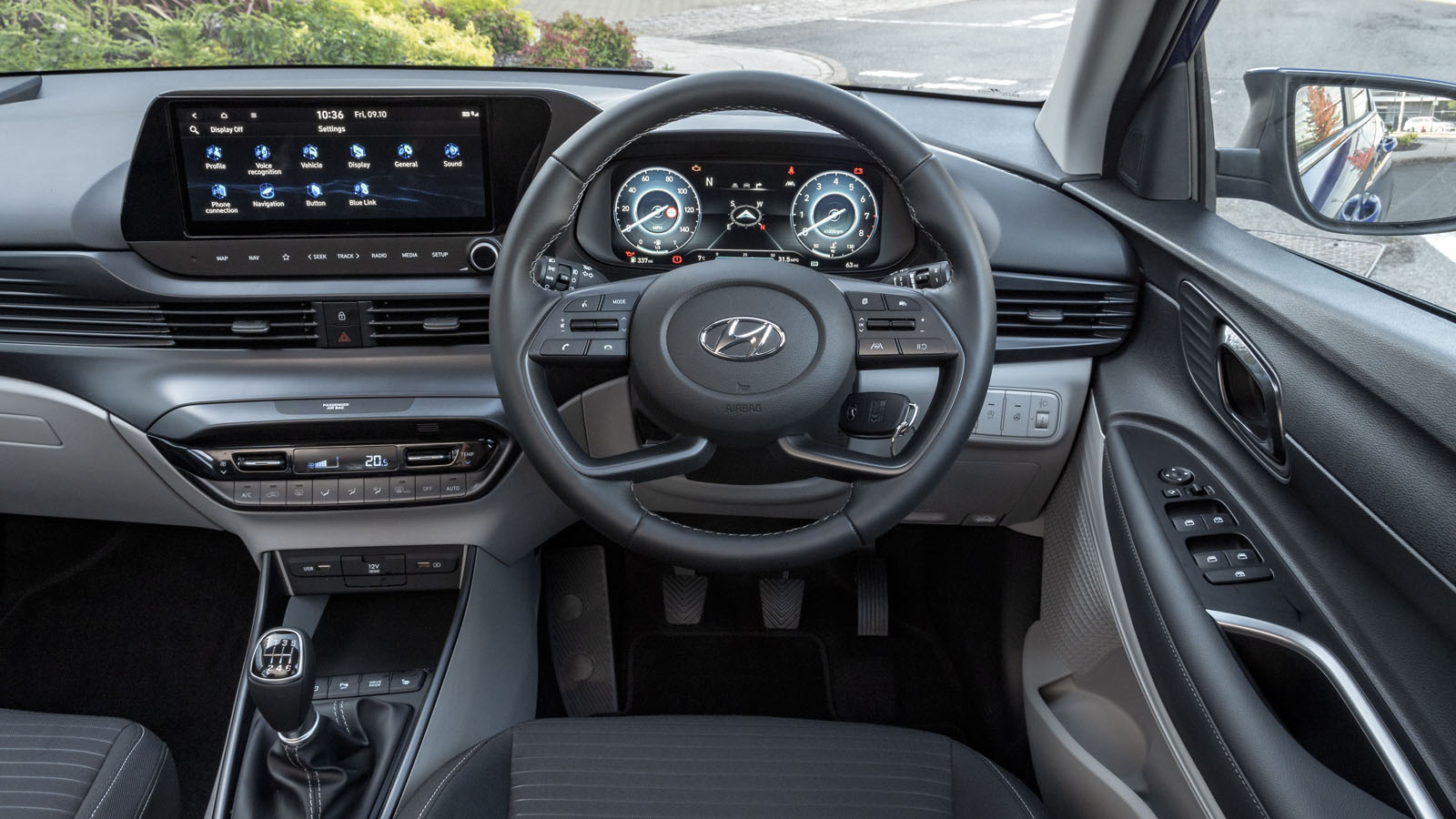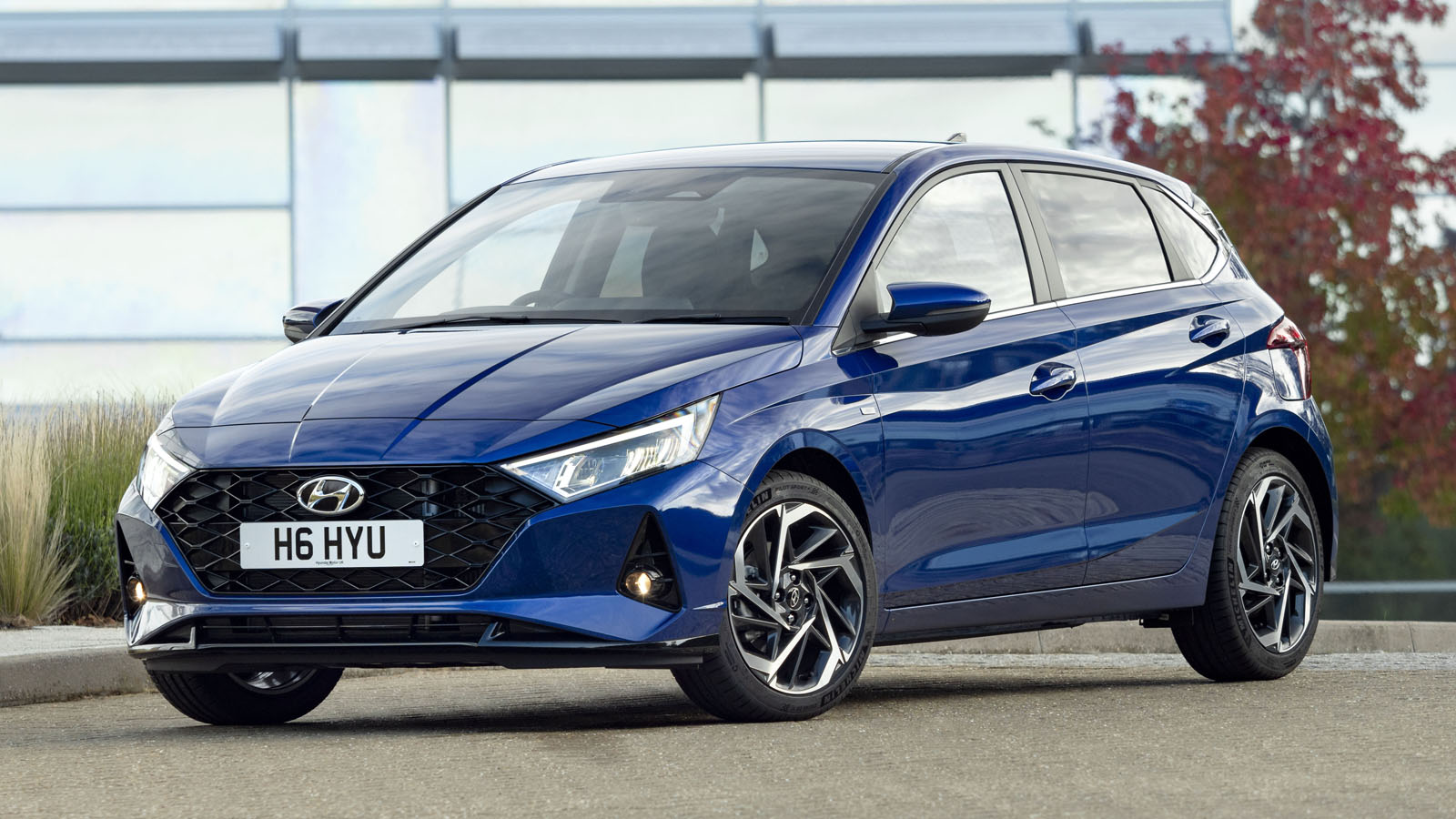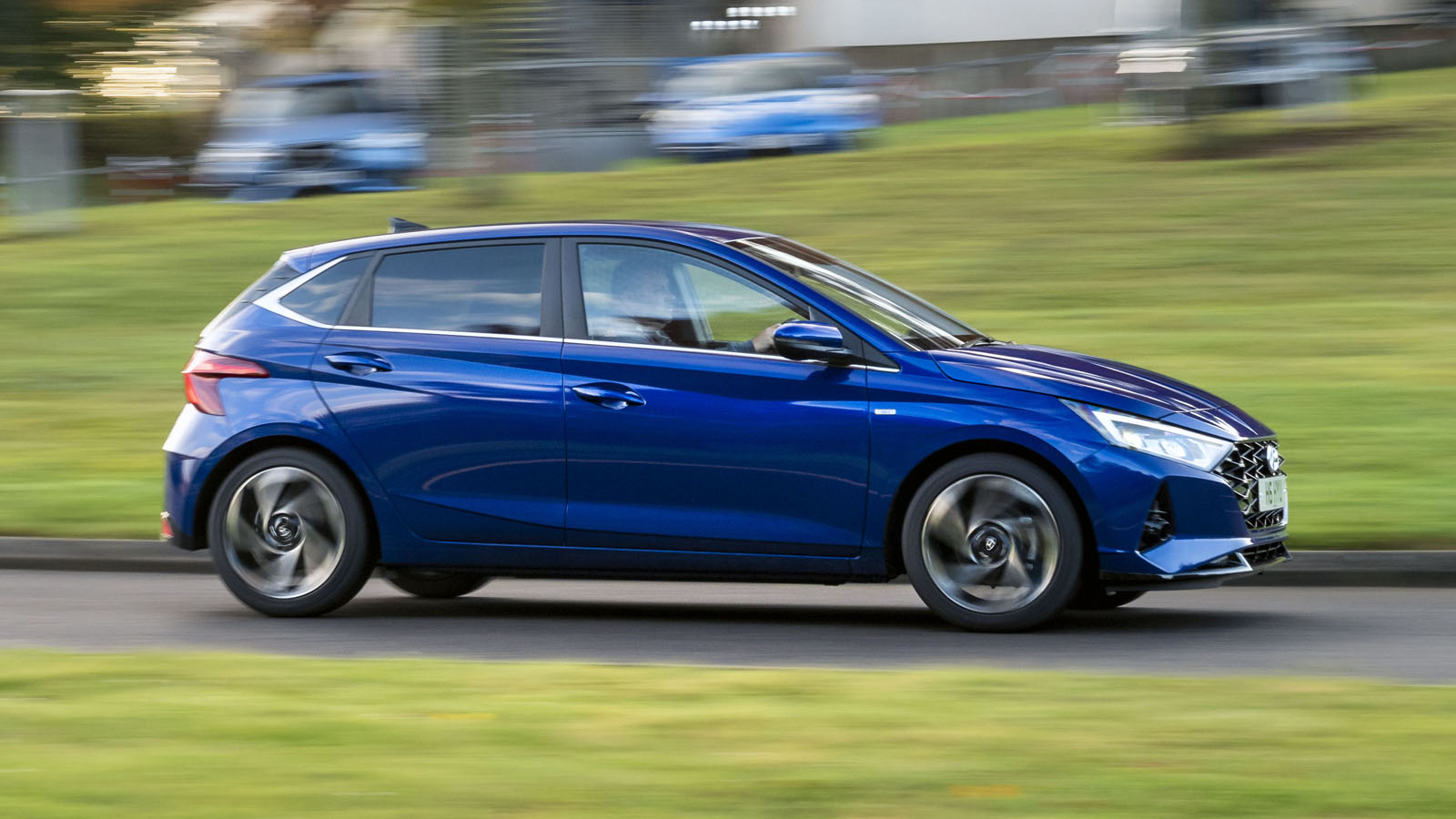
Buying
What should I be paying?
If you’re looking to buy outright, the i20 seems relatively expensive at first. Prices start at just over £18,000 – you can get into a base-spec Fiesta, Corsa, 208 or Clio for (sometimes much) less. No doubt that’s mostly down to the Hyundai’s clever mild-hybrid powertrain – so far the only engine option in the i20, but one you’d have to pay extra for in rivals. Compare spec for spec, though, and the i20 is priced squarely against its many, many challengers.
The line-up is reassuringly straightforward, with no lengthy options list to figure out. There are three-specs – in order of expense: SE Connect, Premium and Ultimate. And all are reasonably well-equipped. Premium is a £2,200, erm, premium over SE Connect. Ultimate is another £1,300 on top of that. The automatic gearbox costs £1,250 and metallic paint is £550.
SE Connect gets the eight-inch touchscreen with smartphone mirroring, cruise control, electric windows all-round, manual air-conditioning, rear parking sensors and LED running lights. Premium adds climate control, full LED headlights, a heated steering wheel/seats, 17-inch alloys (versus 16s) and of course the big infotainment system. Ultimate, meanwhile, adds a Bose stereo, wireless phone charging and some more safety systems.
Ah yes, safety. Whatever the spec, i20s come loaded with active and passive safety systems. Hyundai claims it offers “the most comprehensive safety package in the segment” and features "not expected to be found in B-segment cars”. All cars get autonomous emergency braking, forward collision assist with pedestrian detection, lane keeping assist & departure warning and so-on. Ultimate adds blind-spot monitoring and cyclist detection.
Hyundai claims 54.3mpg for cars with 17-inch wheels, and a little more for cars with 16s. CO2 emissions are between 115 and 118g/km for the manual and 117 to 121g/km for the auto.
The warranty is five years/unlimited miles, and residual values are strong.
Featured







